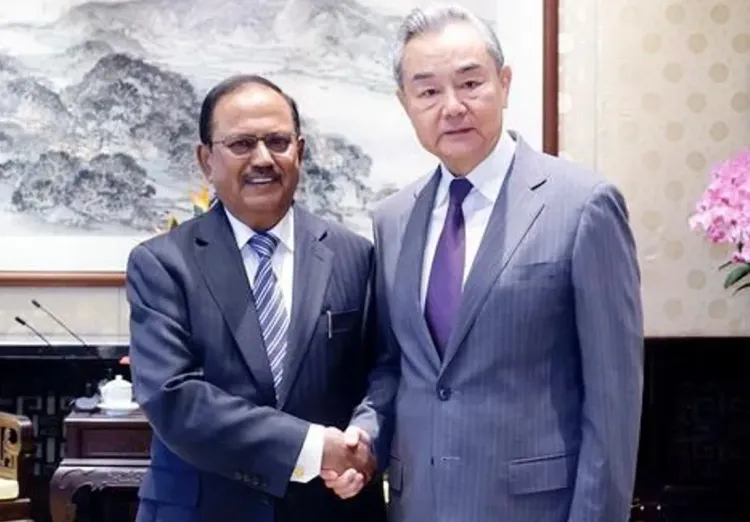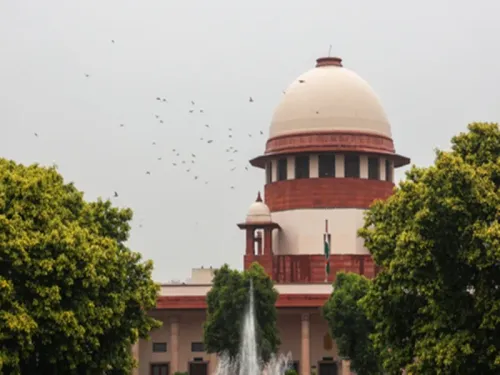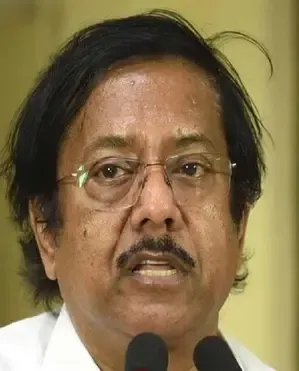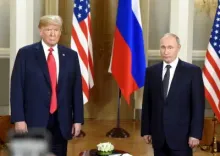What Did NSA Ajit Doval Discuss With Chinese Foreign Minister Wang Yi?

Synopsis
Key Takeaways
- NSA Ajit Doval engaged with Wang Yi to discuss India-China relations.
- Emphasis on combating terrorism for regional stability.
- Future talks planned in India to continue the dialogue.
- Importance of people-to-people ties in strengthening relations.
- Concerns raised regarding the Pahalgam terror attack.
Beijing, June 23 (NationPress) National Security Adviser (NSA) Ajit Doval engaged with Chinese Foreign Minister Wang Yi during his visit to China for the 20th Meeting of the SCO Security Council Secretaries, as confirmed by the Ministry of External Affairs (MEA) on Monday.
The MEA indicated that both parties assessed the latest developments in India-China bilateral relations and highlighted the significance of advancing these relations, particularly through enhanced people-to-people connections.
“The NSA stressed the importance of combating terrorism in all its forms to ensure lasting peace and stability in the region,” the MEA noted.
Additionally, discussions covered various bilateral, regional, and global matters of shared interest.
“The NSA expressed his eagerness to meet with Wang Yi in India at a mutually suitable time for the 24th round of the Special Representative Talks,” the MEA remarked.
Prior to this, India urged that the Pahalgam terror attack be referenced in documents prepared for the upcoming SCO summit under China's presidency.
In parallel, Pakistan sought to include mentions of the hijacking of the Jaffar Express and a recent bus attack by Baloch rebels in the same documents.
Reports suggest that India has advocated for an official statement from the upcoming SCO summit to denounce the Pahalgam terror attack, which tragically resulted in the deaths of 26 tourists due to heavily armed terrorists affiliated with Pakistan-based terror group Lashkar-e-Taiba's offshoot, The Resistance Front.
Sources indicate serious negotiations are ongoing to integrate India's proposal regarding the terror attack into the document, as neglecting this could jeopardize the proceedings of the SCO.
The SCO is a permanent intergovernmental international organization founded on June 15, 2001, in Shanghai. Its member states include India, Iran, Kazakhstan, China, Kyrgyzstan, Pakistan, Russia, Tajikistan, Uzbekistan, and Belarus.









